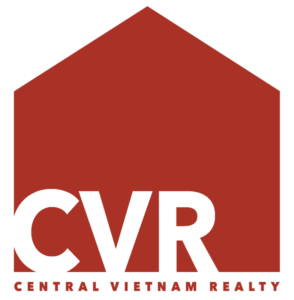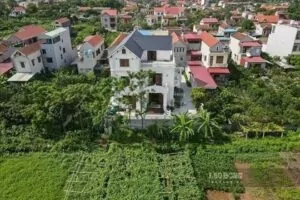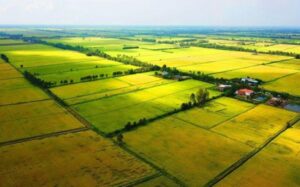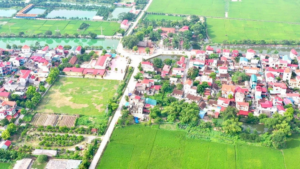Week 41/2024 – Central Vietnam Real Estate News Summary
In this weekly or sometimes bi-weekly news flash – CVR: Central Vietnam Realty will provide a choice of articles from mainly Vietnamese media sources related to the real estate market in Vietnam.
We will be focusing on issues related to Da Nang and Hoi An, while also looking at national news and their possible impact on Central Vietnam’s property market.
You will find a summary, a link to the source as well as CVR’s take on the article.
We believe that local knowledge is the key to making the best possible decision and that’s what we offer to all our clients.
“CVR: Western Management – Local Knowledge”
1. Starting From October 4, What Are The Penalties For Transferring Land Use Rights Without Registering Land Use Changes?
-
Starting from October 4, 2024, new regulations regarding the transfer of land use rights (sổ đỏ) will take effect, significantly impacting land transactions. Transferring a sổ đỏ without registering land use changes will incur fines ranging from 2 to 3 million VND, encouraging citizens to complete all legal procedures related to their property.
-
The transfer of a sổ đỏ is a mandatory procedure for the government to manage land use rights. According to Article 133 of the 2024 Land Law, individuals receiving land use rights must obtain confirmation from the competent authority. If they fail to register changes within 30 days, they will face administrative penalties.
-
Decree 123/2024/NĐ-CP specifies the fines: 1 to 2 million VND for failing to register land use for the first time, and 2 to 3 million VND for not registering land use changes, including transfers and donations. Citizens should be aware of these regulations to avoid fines and protect their legal rights in real estate transactions.
-
Not completing the registration process can lead to legal complications and affect ownership rights. The fulfilling all procedures related to land use rights is crucial for ensuring transparency and legality in real estate dealings. Citizens should proactively seek to understand and comply with these regulations to safeguard their interests.
Source: cafef.vn
2. Currently, The Law In General And The Land Law In Particular Do Not Regulate Or Explain What Is Adjacent Land.
Adjacent land is the area of land adjacent to residential land in a plot of land with many different types of land. Legally, adjacent land has no specific boundaries, and at the same time, mainland land is usually non-agricultural land, not residential land, and other types of agricultural land such as annual crop land, perennial crop land, etc. adjacent to the land area within the same plot of land.
When is adjacent land converted into residential land? Points b and dd, Clause 1, Article 121 of the Land Law 2024 stipulates as follows: Cases of changing land use purposes that require permission from competent state agencies include:
– Converting agricultural land to non-agricultural land;
– Converting non-agricultural land that is not residential land to residential land.
Source: kinhtedothi.vn
3. Two Beaches In A Vietnamese City Are In The Top 50 Most Attractive Beaches On The Planet.
Da Nang continues to affirm its position as Vietnam’s leading beach tourism when two beaches, My Khe and Non Nuoc, were honored by Telegraph. The perfect combination of nature and people has created the irresistible attraction of these two beaches My Khe and Non Nuoc, two famous beaches of Da Nang, Central Vietnam, were voted by the British Telegraph newspaper in the list of 50 most charming beaches in the world in the category “Best atmosphere” Da Nang, Vietnam’s fourth largest city, is known as the economic and political center of the Central region, possessing many beautiful beaches that have been honored by international media.
This place is famous for its fine white sand, clear blue sea water and cool breeze, creating an airy space, cool in the summer and warm in the winter. Along the beach are luxury resorts, providing many high-end services, attracting a large number of domestic and foreign tourists.
Source: tcdulichtphcm.vn
4. The Prime Minister Has Requested Local Authorities To Focus On Issuing Detailed Regulations For The Land Law.
Prime Minister Phạm Minh Chính has issued Directive No. 105/CĐ-TTg on October 10, 2024, urging local authorities to promptly finalize the issuance of detailed regulations for the implementation of the Land Law by October 15, 2024. The Land Law, effective from August 1, 2024, has contributed to reforms and improved land management efficiency. However, many provinces and cities have yet to complete the detailed guiding documents, causing difficulties in implementation. The Prime Minister criticized the delays and demanded local leaders be held accountable and complete the assigned tasks.
Source: cafef.vn
5. Outstanding Real Estate And Construction Policies Take Effect From October 2024.
From October 2024, several new policies on real estate and construction in Vietnam take effect. Notably, apartment floors must now be numbered sequentially from the first floor, with options to avoid unlucky numbers like 4 or 13 by using alternate labels (e.g., 3A). Hanoi and Đồng Nai also established new land allocation limits for urban and rural areas, while Thanh Hóa set minimum lot sizes for land separation, with urban lots requiring at least 40m² and rural lots needing 50m². These changes aim to standardize housing and land management across regions.
Source: cafeland.vn
-
-
As always, CVR is at your service and happy to provide help anyways we can!
Contact Us today to find the real estate investment in Da Nang that is right for You.
-




